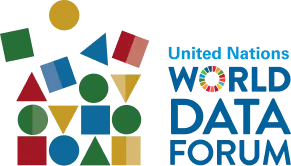
Facilitating Open Access to Data on Forcibly Displaced and Stateless Persons through the Refugee Data Finder

Read about the commitment “Open access to thematic indicators on forcibly displaced and stateless persons” here.
Collecting and disseminating data on forcibly displaced and stateless persons is crucial to formulating effective solutions to protect their human rights. While several databases exist on usual residents who are refugees, there is a need for data disaggregated by displaced status to fully understand their experiences. The World Bank-UNHCR Joint Data Center on Forced Displacement (JDC) has committed not only to filling this gap, but producing, analyzing, and disseminating a variety of data on forcibly displaced and stateless persons.
Refugee Data Finder – JDC’s Updated Interactive Database
While the Refugee Data Finder is not a new tool, it has received a major update recently as part of JDC’s commitment. The new features under “Data summaries” allow users to view data on displaced persons from 2000 to 2024 disaggregated by traits such as age, gender, origin, asylum location, and population type. The population type disaggregation includes eight types, including Refugees, Asylum-seekers, and Stateless people. This disaggregation option makes the Refugee Data Finder a unique and valuable resource, as the diverse realities and experiences of these different groups are often homogenized. For each year and population type, the total number and percent change from the previous year are presented, allowing for easy analysis of trends. Additionally, the portal offers data on asylum applications and whether they were accepted or denied. Data on the solutions including returned, naturalized, and resettled persons. The portal also offers robust methodology and metadata, ensuring that the data is open and transparent.
Beyond JDC’s Refugee Data Finder – Strengthening Statistical Inclusion for Forcibly Displaced and Stateless Persons
JDC’s work on data on displaced and stateless persons goes beyond the update of the Refugee Finder as they advocate for data collection, production, and dissemination of displaced persons globally. Some highlights include:
- With UNHCR and JCD’s support, Uganda National Household Survey Report 2023/24 was published in May 2025 and included refugees in national data collection for the first time. The data revealed education and income gaps for refugees, highlighting the need for future policy interventions. Read the report here (the Refugee chapter starts on pg. 101) or a summary of the Refugee chapter here.
- In March 2025, UNHCR published its “Forced Displacement Literature Review,” focusing on self-reliance and employment for forcibly displaced persons in a variety of settings.
- JDC’s blog “How data can help our understanding of refugee returns – and why we need to” from December highlighted some key findings from their November digest. These publications discuss important topics such as existing data gaps on refugees and feature a literature review on the experiences of returning refugees.

JDC’s actions in promoting data on forcibly displaced and stateless persons goes beyond their publications, with events including:
- 23 June 2025: JDC’s Senior Data Scientist Paddy Brock gave a keynote presentation titled “Innovating for Better Data on Forced Displacement” at the 6th workshop on the Data for the Wellbeing of the Most Vulnerable.
- 20 May 2025: Aissatou Dicko, Head of JDC, moderated a webinar for the Multi-stakeholder Pledges on Statistical Inclusion and Economic Inclusion and Social Protection of Forcibly Displaced and Stateless Persons. This webinar featured speakers from the governments of Djibouti, Iraq, the Philippines, Ethiopia, and the UK to discuss their experiences with statistical inclusion.
- 12 December 2024: JDC hosted a launch event for their e-learning course “Learning from the Evidence on Forced Displacement.” The course is free and open to anyone working with displaced and host communities – register here.
Looking ahead
While JDC has achieved its commitment in re-developing its Refugee Data Finder to include more robust data on forcibly displaced and stateless persons and solutions, their work in putting data on these populations at the forefront of the data landscape is far from over. Check the Refugee Data Finder as it is continually updated and subscribe to their newsletter to stay up to date with upcoming events, publications, and blogs.
